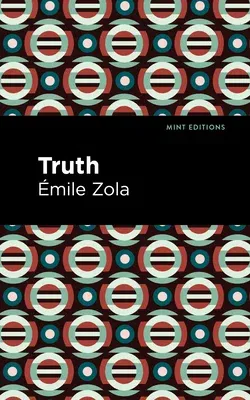Truth (1903) is a novel by French author Émile Zola. Published as the
third installment of his Les Quatre Évangiles, a series of four novels
inspired by the New Testament gospels and aimed at investigating
prominent social issues, Truth was the last of Zola's novels to be
published when it appeared the year after his death. Combining his
trademark naturalist style with aspects of his experience advocating on
behalf of Alfred Dreyfus, a French Jew falsely convicted of spying, Zola
crafts a story of prejudice and institutional corruption without losing
sight of humanity. In a rural village in France, a young boy is
discovered murdered and sexually assaulted in his own bedroom. Shocked
and outraged, the people of the village initially turn toward a local
vagrant as a suspect. As his innocence becomes more and more apparent,
however, a story begins to circulate blaming the boy's uncle, a Jewish
schoolmaster, who supposedly resented his brother's marriage to a
Catholic woman. Spurred on by the local church, run by the Christian
Brothers, the people stoke the flames of antisemitism while alienating
the town's growing secular minority in order to scapegoat an
influential--and innocent--Jewish man. Truth is a terrifying,
essential novel that looks unsparingly at the prejudices rampant in
European society only decades before the Holocaust. Zola's final novel
is a thrilling examination of the interconnected nature of politics,
religion, and the press, and a rallying cry for those brave souls who
dare to take a stand against violence and oppression. With a beautifully
designed cover and professionally typeset manuscript, this edition of
Émile Zola's Truth is a classic work of French literature reimagined
for modern readers.


